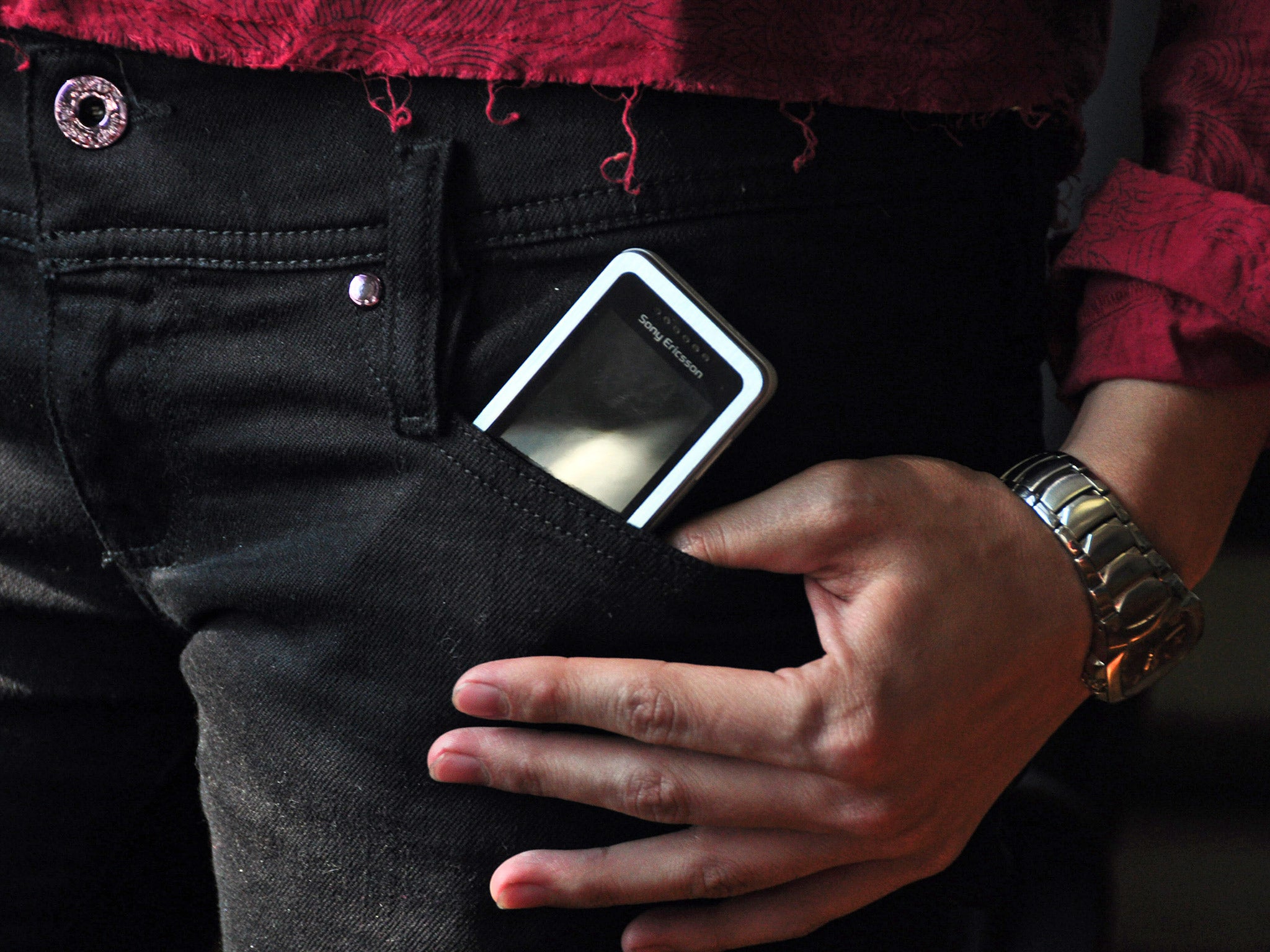Phantom vibration syndrome: Beware the imaginary buzz - it could be the sign of anxiety
The phenomenon was first identified more than a decade ago, and Rhodri Marsden has experienced it three times in the space of a few days

It's become an automatic reflex for millions of people, and one that's unique to this small window of history: our phone vibrates once or twice in our pocket, and we immediately reach inside to see what exciting news it might have to show us. But twice this week I've responded to the buzz to find no alert on my phone, and on one occasion my phone wasn't even in my pocket.
The phenomenon of so-called phantom vibration syndrome was first identified more than a decade ago, and I've experienced it myself occasionally from time to time – but why have I had it three times in the space of a few days? A study that's just emerged from the University of Michigan suggests that the syndrome might have some kind of relationship with anxiety, and in a week that I've personally found to be a bit fraught, I can certainly buy that argument.
A number of theories about phantom vibration syndrome – let's call it PVS – have been suggested over the years, and the most common one relates to the phenomenon of pareidolia, where our brains try to fill in gaps in the information it is processing, in order to try to make sense of what's going on. A common example of this might be seeing faces in clouds, or a pattern of some gaudy hotel wallpaper; the learned association between buzzing sensations and digital notifications has, through sheer frequency, become so strong as to induce a form of pareidolia.
Twenty years ago we wouldn't have thought twice about feeling a tiny twinge in our upper leg, but in 2016 it has a far greater significance. It means that someone's trying to get in touch and that it demands a response, which we give willingly.
The question is why some of us have more of a hair trigger response than others, and the answer – perhaps unsurprisingly – appears to be down to how badly we want that alert to happen in the first place. The University of Michigan study, written up in a paper subtitled "Attachment anxiety predicts experiences of phantom cell phone ringing", looked at the responses and behaviour of 411 students; it found that those with higher levels of attachment anxiety, ie the ones who crave reassurance, experience more phantom vibrations than those who were more prone to attachment avoidance.
The identification of any kind of link between technology and neediness tends to invite mocking commentary; hilarious, isn't it, that a small number of people sit so awkwardly with themselves that they're desperate to feel their phone buzzing? But past investigations have revealed just how widespread this kind of thing is; the percentage of people who have experienced PVS is usually revealed to be above 60 per cent – occasionally as high as 90 per cent – and is prevalent among extroverts as well as neurotics.
Scientists are only starting to get to grips with the many and various links between anxiety and mobile communication, but the smartphone's role as a kind of crutch for many of us is undeniable, to the extent that when it's not alerting us to something, we like to think that it is.
So the next time you feel a vibration in your leg, or through your bag, and it turns out not to mean what you think it did, don't just dismiss it as an unusual consequence of modern life.
It might be telling you something far more interesting about your state of mind.
Join our commenting forum
Join thought-provoking conversations, follow other Independent readers and see their replies
Comments
Bookmark popover
Removed from bookmarks